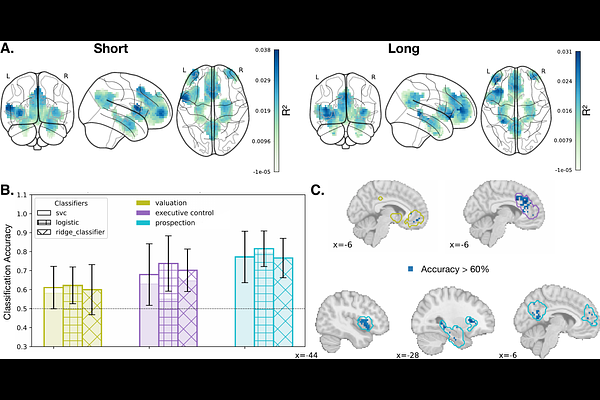Intertemporal choice across short and long time horizons: an fMRI study

Intertemporal choice across short and long time horizons: an fMRI study
Xu, S.; Erlich, J. C.; Lukinova, E.
AbstractThis preregistered fMRI study investigates the neural mechanisms underlying intertemporal choices involving waiting and postponing. On a behavioral level, choices made regarding rewards available in seconds that require waiting compared to choices about rewards postponed to a number days are surprisingly similar. The explanation to this short/long time scales gap is lacking even after considering time perception and external factors, such as stress. To address that this study is the first to examine the overlapping and distinct neural circuitry involved in the intertemporal choices over seconds and days, and the waiting period within subject. Our results revealed considerable overlap in brain activation during choices that consider seconds and days delays to reward in the executive control (dACC, dlPFC) and prospection (PCC/precuneus, dmPFC) networks, but not in the valuation network. Consistent with existent literature we found the valuation network activation (both vmPFC and ventral striatum) being parametrically modulated by individual subjective values of delayed rewards. Overall, the key network determined through representational similarity and decoding analyses was prospection accounting for similarity in activation during decision making across time scales of delays and discriminating between waiting and postponing the reward. These findings enhance our understanding of the neural underpinnings of intertemporal choices and their implications for real-life decisions occurring across varying time horizons, such as paying to skip advertisements while watching videos or deciding on the next-day delivery service.